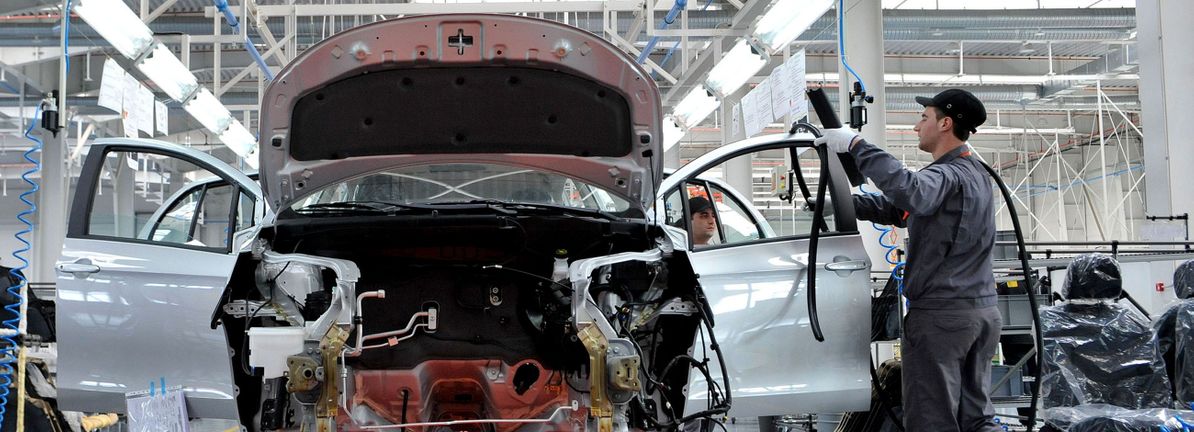
The external fund manager backed by Berkshire Hathaway’s Charlie Munger, Li Lu, makes no bones about it when he says ‘The biggest investment risk is not the volatility of prices, but whether you will suffer a permanent loss of capital.’ So it might be obvious that you need to consider debt, when you think about how risky any given stock is, because too much debt can sink a company. As with many other companies BYD Company Limited (HKG:1211) makes use of debt. But should shareholders be worried about its use of debt?
What Risk Does Debt Bring?
Debt is a tool to help businesses grow, but if a business is incapable of paying off its lenders, then it exists at their mercy. Ultimately, if the company can’t fulfill its legal obligations to repay debt, shareholders could walk away with nothing. However, a more frequent (but still costly) occurrence is where a company must issue shares at bargain-basement prices, permanently diluting shareholders, just to shore up its balance sheet. Of course, plenty of companies use debt to fund growth, without any negative consequences. The first step when considering a company’s debt levels is to consider its cash and debt together.
Check out our latest analysis for BYD
What Is BYD’s Debt?
You can click the graphic below for the historical numbers, but it shows that BYD had CN¥24.0b of debt in September 2022, down from CN¥42.7b, one year before. However, it does have CN¥47.4b in cash offsetting this, leading to net cash of CN¥23.4b.

How Healthy Is BYD’s Balance Sheet?
According to the last reported balance sheet, BYD had liabilities of CN¥287.6b due within 12 months, and liabilities of CN¥26.0b due beyond 12 months. On the other hand, it had cash of CN¥47.4b and CN¥62.1b worth of receivables due within a year. So its liabilities outweigh the sum of its cash and (near-term) receivables by CN¥204.2b.
While this might seem like a lot, it is not so bad since BYD has a huge market capitalization of CN¥650.9b, and so it could probably strengthen its balance sheet by raising capital if it needed to. However, it is still worthwhile taking a close look at its ability to pay off debt. While it does have liabilities worth noting, BYD also has more cash than debt, so we’re pretty confident it can manage its debt safely.
On top of that, BYD grew its EBIT by 59% over the last twelve months, and that growth will make it easier to handle its debt. When analysing debt levels, the balance sheet is the obvious place to start. But ultimately the future profitability of the business will decide if BYD can strengthen its balance sheet over time. So if you want to see what the professionals think, you might find this free report on analyst profit forecasts to be interesting.
But our final consideration is also important, because a company cannot pay debt with paper profits; it needs cold hard cash. While BYD has net cash on its balance sheet, it’s still worth taking a look at its ability to convert earnings before interest and tax (EBIT) to free cash flow, to help us understand how quickly it is building (or eroding) that cash balance. Happily for any shareholders, BYD actually produced more free cash flow than EBIT over the last three years. There’s nothing better than incoming cash when it comes to staying in your lenders’ good graces.
Summing Up
Although BYD’s balance sheet isn’t particularly strong, due to the total liabilities, it is clearly positive to see that it has net cash of CN¥23.4b. And it impressed us with free cash flow of CN¥44b, being 339% of its EBIT. So we don’t think BYD’s use of debt is risky. Above most other metrics, we think its important to track how fast earnings per share is growing, if at all. If you’ve also come to that realization, you’re in luck, because today you can view this interactive graph of BYD’s earnings per share history for free.
If you’re interested in investing in businesses that can grow profits without the burden of debt, then check out this free list of growing businesses that have net cash on the balance sheet.
Valuation is complex, but we’re helping make it simple.
Find out whether BYD is potentially over or undervalued by checking out our comprehensive analysis, which includes fair value estimates, risks and warnings, dividends, insider transactions and financial health.
Have feedback on this article? Concerned about the content? Get in touch with us directly. Alternatively, email editorial-team (at) simplywallst.com.
This article by Simply Wall St is general in nature. We provide commentary based on historical data and analyst forecasts only using an unbiased methodology and our articles are not intended to be financial advice. It does not constitute a recommendation to buy or sell any stock, and does not take account of your objectives, or your financial situation. We aim to bring you long-term focused analysis driven by fundamental data. Note that our analysis may not factor in the latest price-sensitive company announcements or qualitative material. Simply Wall St has no position in any stocks mentioned.
Source link
